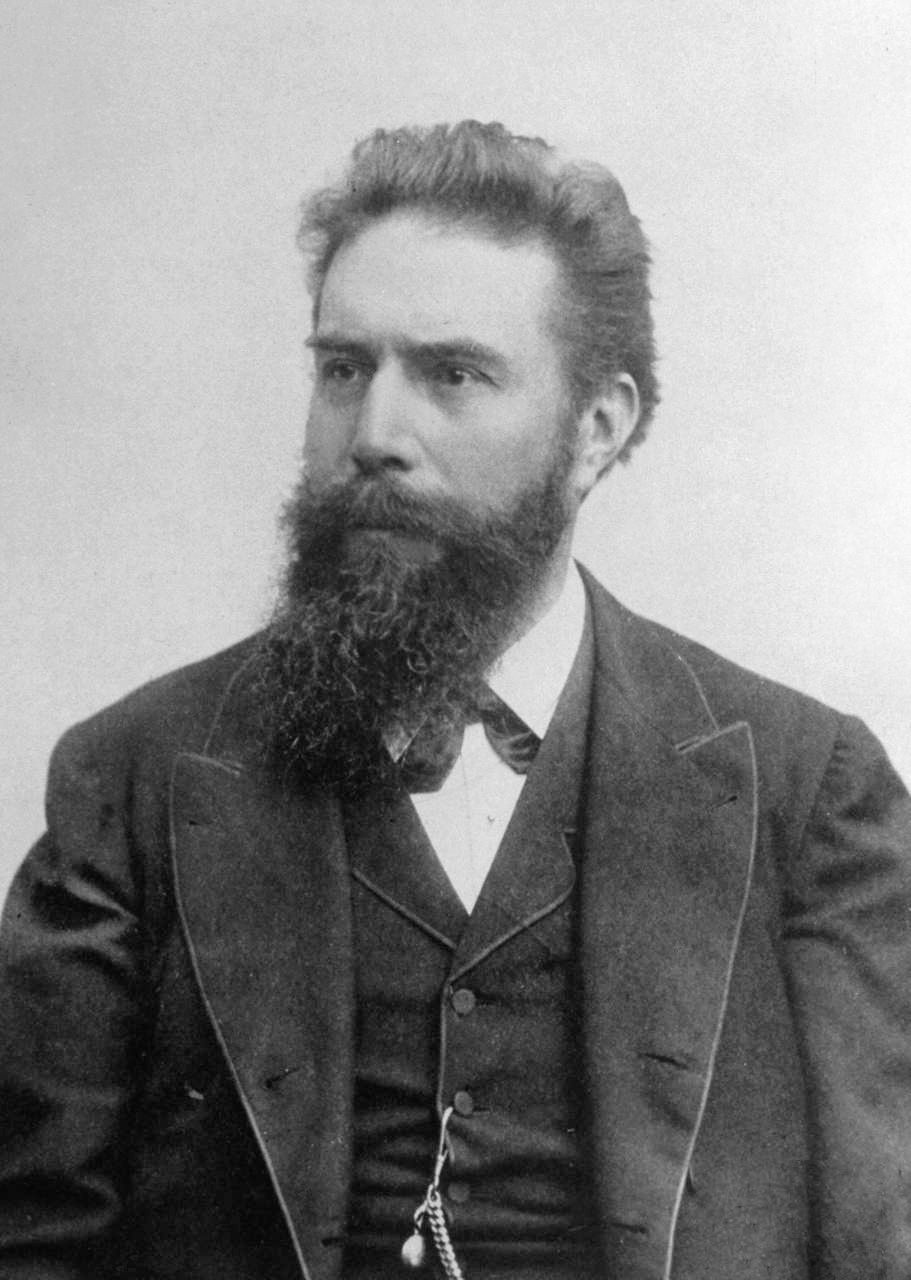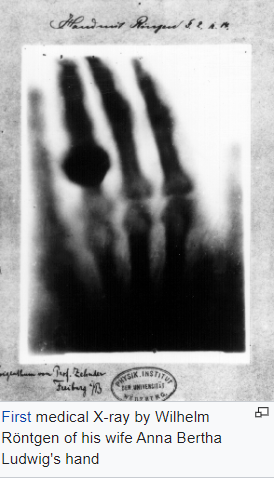
Wilhelm Conrad Röntgen 27th March 1845 – 10th February 1923, was a German mechanical engineer and physicist, who, on the 8 November 1895 produced and detected electromagnetic radiation in a wavelength range known as X-rays or Röntgen rays, an achievement that earned him the first Nobile Prize in physics in 1901. In honour of his accomplishments, in 2004 the International Union of Pure and Applied Chemistry (IUPAC) named element 111, roentgenium, a radioactive element with multiple unstable isotopes, after him.
He inherited two million Reichsmarks after his father’s death. For ethical reasons, Röntgen did not seek patents for his discoveries, holding the view that it should be publicly available without charge. After receiving his Nobel prize money, Röntgen donated the 50k Swedish crown to research at the University of Würzburg.

Although he accepted the honorary degree of Doctor of Medicine, he rejected an offer of lower nobility, or Niederer Adeltitel, by denying the preposition von (meaning “of”) as a nobiliary particle (i.e., von Röntgen).
